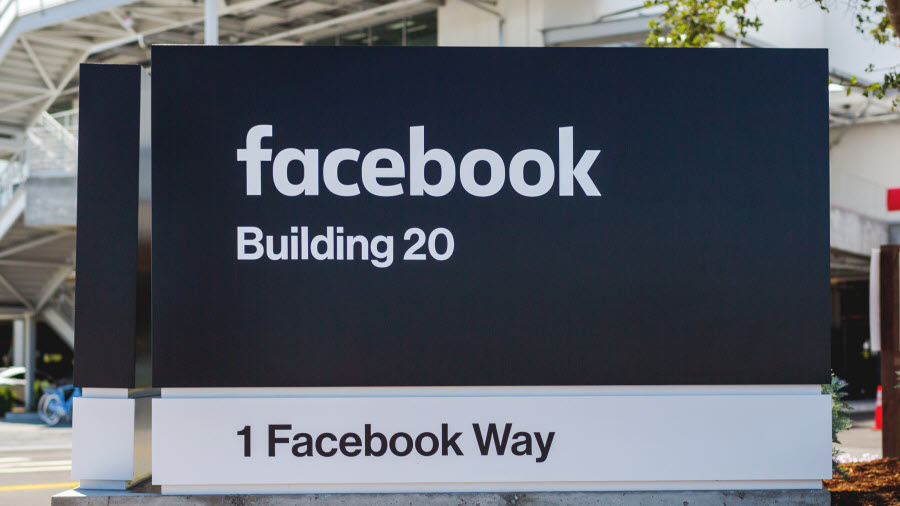Court Allows FTC's Facebook Antitrust Suit To Proceed
Said Federal Trade Commission's supporting facts were enough to let the suit go to a discovery phase

The smarter way to stay on top of the multichannel video marketplace. Sign up below.
You are now subscribed
Your newsletter sign-up was successful
A D.C. District Court judge has said the Federal Trade Commission can proceed with its antitrust suit against Facebook, but not with its allegation that Facebook blocked app interoperability (its so-called "platform policies").
While Judge James E. Boasberg said the agency "may" have a tough time proving its allegations, the suit can proceed to the discovery phase. That is "the formal process of exchanging information between the parties about the witnesses and evidence they will present at trial."
The same court had dismissed the FTC's initial suit last June -- as Facebook had requested -- for failing to sufficiently support its claim that Facebook exercised monopoly power in the social network space. But the court had left the door open for the commission to try again. The FTC did and Facebook again asked the court to dismiss.
Also: Facebook Will Participate in Instagram Hill Hearing
This time around, Boasberg said, the FTC's supporting facts are "far more robust and detailed," particularly in regards to the "contours" of the alleged monopoly.
The FTC amended its monopoly claim last September with new data, including the new monopoly "contour" that "between September 2012 and December 2020, Facebook's share of time spent by users of apps providing social networking averaged a whopping 92% per month."
The FTC is claiming that Facebook has become dominant by following CEO Mark Zuckerberg's plan to buy up to monopoly. It cited his 2008 statement that “it is better to buy than compete” — citing the acquisitions of WhatsApp and Instagram — as exhibits A and B. The FTC called Facebook’s actions an “anti-competitive acquisition strategy with anticompetitive conditional dealing policies, designed to erect or maintain entry barriers and to neutralize perceived competitive threats.”
Also: FTC Accuses Facebook of Anticompetitive Advertising
By contrast, the combined time-spent shares of Snapchat, Google Plus, MySpace, Path, MeWe, Orkut and Friendster did not exceed 18% in any month over that time, the FTC said, citing Comscore data. Only Snapchat reached a 10% share, the FTC said.
That appeared to satisfy the court. Boasberg said his decision was based on the following: "First, the FTC has now alleged enough facts to plausibly establish that Facebook exercises monopoly power in the market for PSN services. Second, it has adequately alleged that the company’s dominant market share is protected by barriers to entry into that market. Third, the agency has also explained that Facebook not only possesses monopoly power, but that it has willfully maintained that power through anticompetitive conduct — specifically, the acquisitions of Instagram and WhatsApp."
The FTC had also alleged that Facebook implemented and enforced policies that prevented apps it believed were a threat to its dominance from interacting with the platform.
Boasberg was unconvinced on that front. "The Court will not, however, allow the allegations surrounding Facebook’s interoperability policies (also known as the Platform policies) to move forward; they founder for the same fundamental reasons as explained before: Facebook abandoned the policies in 2018, and its last alleged enforcement was even further in the past."
The Judge also rejected Facebook's claim that the suit be dismissed because FTC chair Lina Khan had prejudged the outcome and should have recused herself from the vote to pursue the suit.
Khan was counsel to the House Antitrust Subcommittee and as such led an investigation that concluded Facebook had monopoly power, which it shored up with the purchases of WhatsApp and Instagram.
Boasberg said Facebook's argument missed the mark for a number of reasons, including because Kahn was acting in a "prosecutorial capacity" (in filing suit) rather than as an adjudicator engaged in the rulemaking process.
Boasberg said that while Khan has expressed views about Facebook's monopoly power, those views don't suggest she has an axe to grind based on personal animosity or financial conflict of interest that has disqualified prosecutors. And as to her holding those views, Boasberg said: "In selecting a chair for a Commission with these diverse responsibilities — as with choosing the head of any agency — it is natural that the President will select a candidate based on her past experiences and views, including on topics that are likely to come before the Commission during her tenure, and how that administrator will implement the Administration’s priorities.... Courts must tread carefully when reviewing cases in this area lest we 'eviscerate the proper evolution of policymaking were we to disqualify every administrator who has opinions on the correct course of his agency’s future action.' " ■
The smarter way to stay on top of the multichannel video marketplace. Sign up below.
Contributing editor John Eggerton has been an editor and/or writer on media regulation, legislation and policy for over four decades, including covering the FCC, FTC, Congress, the major media trade associations, and the federal courts. In addition to Multichannel News and Broadcasting + Cable, his work has appeared in Radio World, TV Technology, TV Fax, This Week in Consumer Electronics, Variety and the Encyclopedia Britannica.

